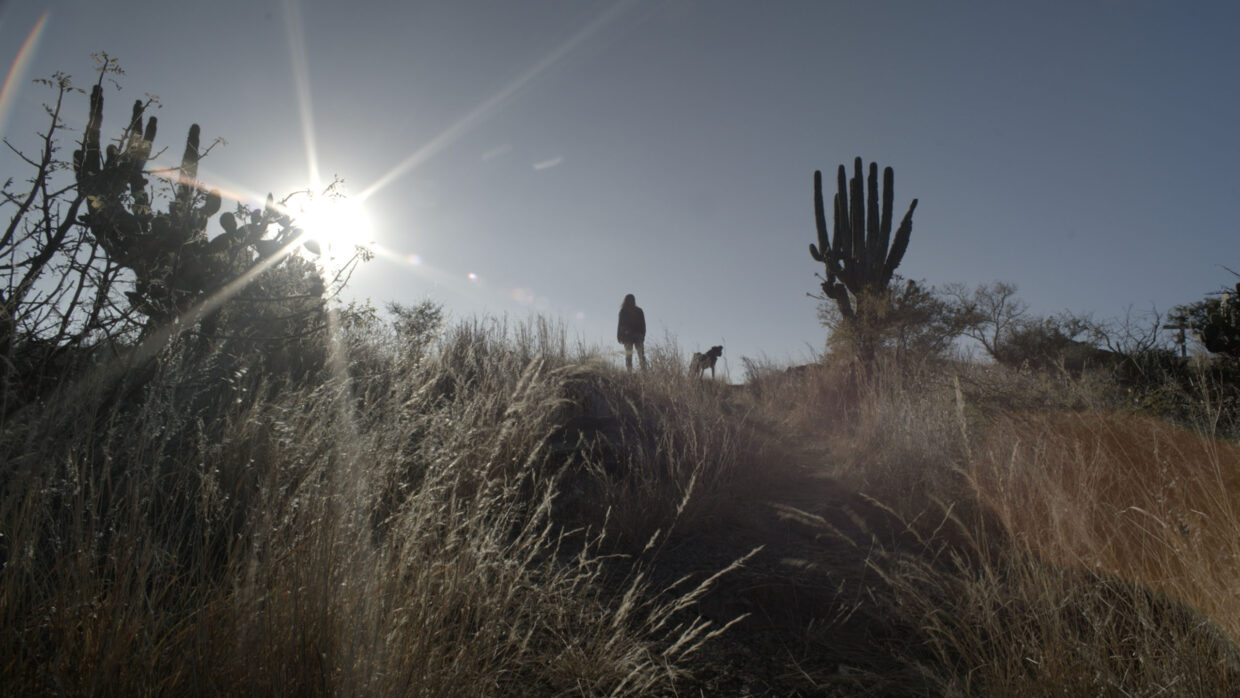 Back to selection
Back to selection
“Creating Editorial Iterations Can Often Be Like Smelling Too Much Perfume”: Editor Susan Korda on Sujo

In Sujo, co-directed by Astrid Rondero (The Darkest Days of Us) and Fernanda Valadez (Identifying Features) and premiering at the 2024 Sundance Film Festival as part of the World Cinema Dramatic Competition, the eponymous child is left orphaned when his father, a cartel gunman, is killed. The film then follows the turbulence that echoes throughout his life as he grows older.
The film’s editor, Susan Korda, is best known for the Oscar-nominated For All Mankind, but she also edited Rondero’s The Darkest Days of Us and Valadez’s Identifying Features. Rondero and Valadez also worked on each other’s films, making this the trio’s third collaboration. Below, Korda explains how she helps with both the rhythm and the more dramatic components of the film.
See all responses to our annual Sundance editor interviews here.
Filmmaker: How and why did you wind up being the editor of your film? What were the factors and attributes that led to your being hired for this job?
Korda: This is the third feature I’ve had the pleasure to collaborate on with directors Astrid Rondero & Fernanda Valadez. They do their own editing and then call me when they feel it’s the right time. My input is everything from dramaturgy to rhythms.
Filmmaker: In terms of advancing your film from its earliest assembly to your final cut, what were your goals as an editor? What elements of the film did you want to enhance, or preserve, or tease out or totally reshape?
Korda: For me the art of editing is about making the sweep of the journey compelling while deepening the moment-to-moment of the audience experience. This means drilling and discovering further the “now” of the characters’ emotional truth in the immediacy of the moment. I also work dramaturgically often, re-writing dialogue or removing it all together; adding scenes and re-ordering is common practice.
Filmmaker: How did you achieve these goals? What types of editing techniques, or processes, or feedback screenings allowed this work to occur?
Korda: Creating editorial iterations can often be like smelling too much perfume—your capacity to discern becomes dulled. This is where feedback screenings can bring back vision and broaden perspective. I’m a big proponent of having the test audience simply say what they experienced and to refrain from asking the production questions. Our important question is: “Where were you confused, bored or distracted?”
Filmmaker: As an editor, how did you come up in the business, and what influences have affected your work?
Korda: I had the good fortune of having someone believe in me more than I did myself. I had assisted once and at 26 was called on to step in for an editor who had been killed in a car crash. It was a documentary about going to the moon using archival footage and only voiceover from the astronauts; Brian Eno and Daniel Lanois did the score. For All Mankind, by Al Reinert, won Grand Jury Prize and Audience Award at Sundance in 1989, and was nominated for an Oscar the following year.
Filmmaker: What editing system did you use, and why?
Korda: The film was edited on Final Cut Pro X. Astrid and Fernanda chose it for its simplicity and flexibility.
Filmmaker: What was the most difficult scene to cut and why? And how did you do it?
Korda: An early scene in the film needed the right dialogue to convey a history and status of relationship without crowding the picture. Less is more.
Filmmaker: Finally, now that the process is over, what new meanings has the film taken on for you? What did you discover in the footage that you might not have seen initially, and how does your final understanding of the film differ from the understanding that you began with?
Korda: From the get-go my orientation is that of discovery and deepening. The process is more like focus being pulled from blurry to sharp, with understanding arising on the journey.
I would have a different answer with a documentary, given that narratives usually have road maps that documentaries don’t have. With a doc, one starts with an understanding that might not be abstract but does get influenced by the “casting” of the real people and unpredictability of the verité, often leading to new and more dramatic understandings on the editorial journey.
